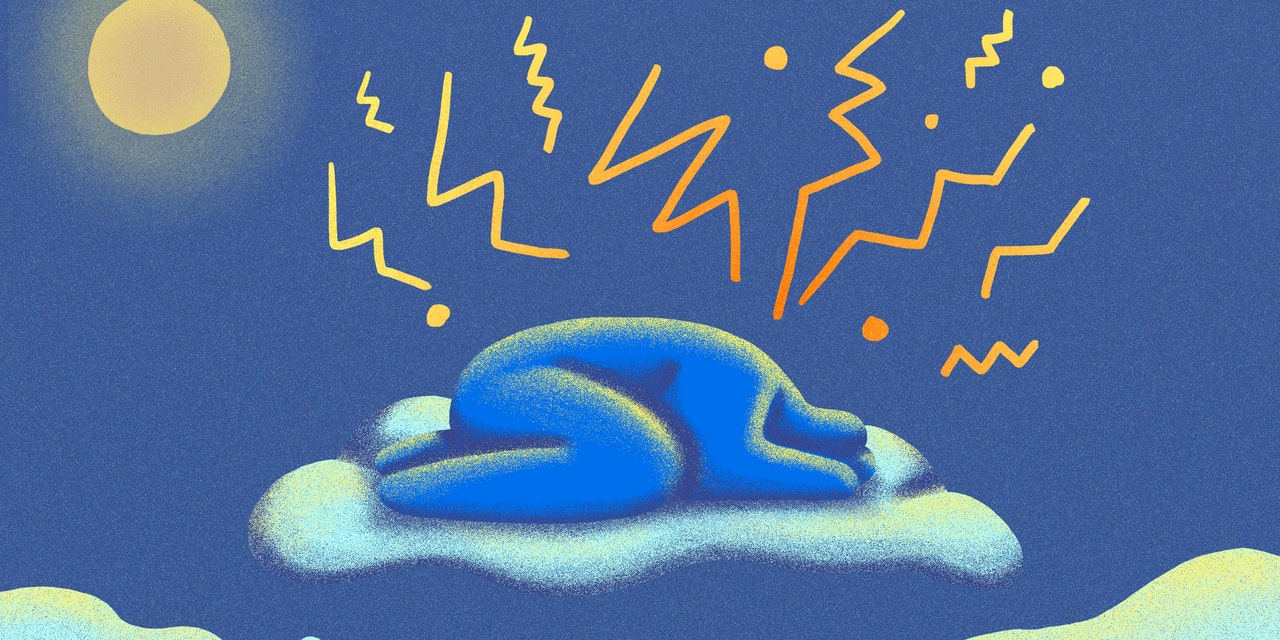Getting solid sleep when you’re living with bipolar I is really important, as you might know firsthand: Research shows spotty rest can potentially cause you to have longer, more intense manic episodes (think: racing thoughts, irritability, and impulsive behavior).1 And when you’re already feeling wired, quality sleep can be especially hard to come by: Some studies show that people who are experiencing a manic episode have trouble dozing off, wake up too early, and get out of bed frequently throughout the night.2
Here’s a simple and effective tip that Nicole Flynn, ASW, a psychotherapist based in Los Angeles, shares with her bipolar I patients who have trouble winding down: Go to bed at the same time each night in a pitch-black room, and get as much sleep as you can. In some studies, this basic technique helped reduce manic episodes from occurring in people diagnosed with bipolar disorder.2 That’s because your circadian rhythms, or internal “clock” of sorts, plays a big role in the condition (and this is true of both bipolar I and II); research shows that irregular circadian rhythms—which generally means your body isn’t quite sure when it’s time to sleep or wake up—might make certain mood episodes more frequent and intense.3
To get yourself into a sleepy zone, think about your environment first. Blackout shades or blackout cling-ons that stick to your window and block out light can help darken your room. You should turn off any night-lights in your space, along with your TV and smartphone—even trace amounts of light can mess with your sleep quality.4
You can also try deep breathing exercises or mindfulness meditation before bed. (Apps like Headspace or InsightTimer offer tons of calming ways to get you feeling drowsy.) Flynn also recommends keeping a mood journal and sleep log so you can track how your daily routines might affect your rest.
When you settle down in bed, you may not start snoozing right away, and that’s okay. Flynn says that simply lying in darkness and stillness can help you adjust to a regular sleep routine.
READ RELATED: Britons living in deprived areas have poorer sleep quality, study finds
Along with staying on top of your treatment plan, avoiding stimulants like caffeine entirely (or at least cutting it out after your morning cup), keeping alcohol to a minimum, and exercising regularly can all potentially improve your sleep. But if you’re still struggling to doze off, or if you’re already feeling symptoms associated with mania or think you need more immediate help, reach out to a mental health professional or your doctor for support. Flynn says they can figure out if your treatment plan needs to change and likely help you map out a sleep routine that works best for you.
If you’re already going through a manic episode, or you feel yourself moving toward one, it might be hard to switch gears and go to bed. But with the right plan and care team in place, you can definitely take steps to support better sleep (and, hopefully, feel better on the whole).
Sources:
- British Journal of Psychiatry, Sleep Loss as a Trigger of Mood Episodes in Bipolar Disorder: Individual Differences Based on Diagnostic Subtype and Gender
- Clinical Psychology New York, Sleep Disturbance in Bipolar Disorder Across the Lifespan
- American Journal of Psychiatry, Sleep and Circadian Rhythms in Bipolar Disorder: Seeking Synchrony, Harmony, and Regulation
- Proceedings of the National Academy of Sciences of the United States of America, Light Exposure During Sleep Impairs Cardiometabolic Function
Related:





